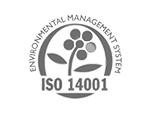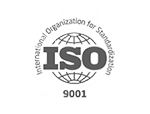Cost-effective transportation significantly enhances supply chain management by reducing operational expenses, improving delivery timelines, and increasing overall efficiency. When transport costs are optimized, companies can allocate resources more strategically, maintain competitive pricing, and improve customer satisfaction. Efficient transportation systems also minimize waste, reduce environmental impact, and create more reliable supply networks that can adapt to market fluctuations.
What makes transportation a critical component of supply chain efficiency?
Transportation forms the backbone of supply chain operations by physically connecting raw material suppliers, manufacturers, distributors, and end consumers. Without efficient transportation, even the best-planned supply chains would fail. The movement of materials directly impacts inventory levels, production schedules, and ultimately, customer satisfaction.
When transportation functions efficiently, companies benefit from:
- Reduced inventory holding costs through timely deliveries
- Better production planning with predictable material arrivals
- Improved customer service through on-time deliveries
- Enhanced flexibility to respond to market changes
The reliability of transportation services is particularly important in just-in-time manufacturing environments, where materials must arrive precisely when needed. Any disruptions in transport can cascade throughout the entire supply chain, causing production delays and customer disappointment.
Intermodal transport solutions further enhance efficiency by combining different transportation methods (road, rail, sea) to optimize cost, time, and environmental impact across complex supply networks.
How do transportation costs affect overall supply chain expenses?
Transportation costs typically represent 10-25% of total supply chain expenses, making them one of the largest cost components in logistics operations. These costs directly influence product pricing, profit margins, and competitive positioning in the market.
The financial impact of transportation extends beyond direct shipping costs to include:
- Fuel consumption and associated price fluctuations
- Vehicle maintenance and replacement schedules
- Driver wages and training requirements
- Administrative overhead for logistics management
- Insurance and risk management expenses
Less visible but equally important are the indirect costs related to transportation decisions. These include inventory carrying costs (which increase with slower or less reliable transportation), customer service expenses from delivery issues, and opportunity costs from capital tied up in transit inventory.
Energy-efficient trucks with improved aerodynamics can significantly reduce fuel consumption, which directly impacts the bottom line and enhances sustainability efforts. When companies optimize these cost factors, they create competitive advantages through leaner, more responsive supply chains.
What strategies can improve transportation cost-effectiveness?
Improving transportation cost-effectiveness requires a multi-faceted approach that balances service quality with operational efficiency. The most successful strategies combine technological solutions with operational improvements and strategic planning.
Effective transportation cost optimization includes:
- Route optimization – Using advanced planning tools to minimize distances traveled and avoid congestion
- Load optimization – Maximizing vehicle capacity utilization to reduce the number of trips required
- Fleet modernization – Investing in energy-efficient trucks with improved aerodynamics to reduce fuel consumption
- Flexible scheduling – Adapting delivery times to avoid peak traffic periods and reduce idle time
- Intermodal transport – Combining road, rail, and sea transport to optimize costs over long distances
Companies can also implement backhaul planning to reduce empty return journeys, collaborate with other shippers to share transport capacity, and invest in driver training to improve fuel efficiency and reduce wear on vehicles.
For specialized materials like powders and granulates, proper handling techniques and equipment can prevent product damage and contamination, which represents significant hidden costs in transportation operations.
How does specialized transport equipment impact supply chain sustainability?
Specialized transport equipment designed for specific cargo types significantly enhances both environmental and economic sustainability throughout the supply chain. Purpose-built transport solutions improve material handling efficiency while reducing waste, spillage, and product contamination.
For environmentally friendly transport of materials like powders and granulates, specialized equipment offers several advantages:
- Reduced product loss during loading, transport, and unloading
- Lower risk of environmental contamination from spillage
- More efficient loading and unloading processes, reducing idle time and emissions
- Better payload optimization, requiring fewer trips for the same volume
- Enhanced worker safety during material handling operations
Modern specialized transport solutions also incorporate sustainable design features such as lightweight construction materials, aerodynamic profiles, and advanced engine technologies that reduce fuel consumption and emissions.
The integration of specialized equipment with digital monitoring systems further enhances sustainability by enabling real-time tracking of environmental parameters, fuel consumption, and route efficiency.
Conclusion
Cost-effective transportation creates ripple effects throughout the entire supply chain, improving not just the bottom line but also customer satisfaction and environmental sustainability. By implementing strategic improvements in transportation operations, companies can achieve significant competitive advantages while meeting increasingly stringent environmental regulations.
The most successful approaches balance immediate cost concerns with long-term sustainability goals, creating transportation systems that are both economically viable and environmentally responsible. At Powder-Trans, we understand the complexities of specialized material transport and how it impacts overall supply chain performance. With over 50 years of experience in transporting powders and granulates across Europe, we continue to develop flexible transport solutions that enhance efficiency while reducing environmental impact.






